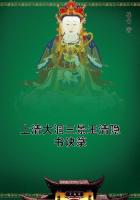Eight Lackeys, in the ante-chambers and elsewhere, these, with each a JAGERBURSCH (what we should call an UNDER-KEEPER) to assist when not hunting, will suffice: Lackeys at "eight THALERSmonthly," which is six shillings a week. Three active Pages, sometimes two, instead of perhaps three dozen idle that there used to be. In King Friedrich's time, there were wont to be a thousand saddle-horses at corn and hay: but how many of them were in actual use? Very many of them were mere imaginary quadrupeds; their price and keep pocketed by some knavish STALLMEISTER, Equerry or Head-groom. Friedrich Wilhelm keeps only thirty Horses; but these are very actual, not imaginary at all; their corn not running into any knave's pocket; but lying actually in the mangers here;getting ground for you into actual four-footed speed, when, on turf or highway, you require such a thing. About, thirty for the saddle,--with a few carriage-teams, are what Friedrich Wilhelm can employ in any reasonable measure: and more he will not have about him.
In the like ruthless humor he goes over his Pension-list;strikes three fourths of that away, reduces the remaining fourth to the very bone. In like humor, he goes over every department of his Administrative, Household and other Expenses: shears everything down, here by the hundred thalers, there by the ten, willing even to save HALF A THALER. He goes over all this three several times;--his Papers, the three successive Lists he used on that occasion, have been printed. [Rodenbeck, <italic> Beitrage zur Bereicherung der Lebembeschreibungen Friedrich Wilhelms I. und Friedrichs des Grossen <end italic> (Berlin, 1836), pp. 99-127.]
He has satisfied himself, in about two months, what, the effective minimum is; and leaves it so. Reduced to below the fifth of what it was; 55,000 THALERS, instead of 276,000. [Stenzel, iii. 237.]
By degrees he went over, went into and through, every department of Prussian Business, in that fashion; steadily, warily, irresistibly compelling every item of it, large and little, to take that same character of perfect economy and solidity, of utility pure and ******. Needful work is to be rigorously well done; needless work, and ineffectual or imaginary workers, to be rigorously pitched out of doors. What a blessing on this Earth;worth purchasing almost at any price! The money saved is something, nothing if you will; but the amount of mendacity expunged, has any one computed that? Mendacity not of tongue;but the far feller sort, of hand, and of heart, and of head;short summary of all Devil's-worship whatsoever. Which spreads silently along, once you let it in, with full purse or with empty;some fools even praising it: the quiet DRY-ROT of Nations!
To expunge such is greatly the duty of every man, especially of every King. Unconsciously, not thinking of Devil's-worship, or spiritual dry-rot, but of money chiefly, and led by Nature and the ways she has with us, it was the task of Friedrich Wilhelm's life to bring about this beneficent result in all departments of Prussian Business, great and little, public and even private.
Year after year, he brings it to perfection; pushes it unweariedly forward every day and hour. So that he has Prussia, at last, all a Prussia made after his own image; the most thrifty, hardy, rigorous and Spartan country any modern King ever tied over;and himself (if he thought of that) a King indeed. He that models Nations according to his own image, he is a King, though his sceptre were a walking-stick; and, properly no other is.
Friedrich Wilhelm was wondered at, and laughed at, by innumerable mortals for his ways of doing; which indeed were very strange.
Not that he figured much in what is called Public History, or desired to do so; for, though a vigilant ruler, he did not deal in protocolling and campaining,--he let a minimum of that suffice him. But in court soirees, where elegant empty talk goes on, and of all materials for it scandal is found incomparably the most interesting. I suppose there turned up no name oftener than that of his Prussian Majesty; and during these twenty-seven years of his Reign, his wild pranks and explosions gave food for continual talk in such quarter.
For he was like no other King that then existed, or had ever been discovered. Wilder Son of Nature seldom came into the artificial world; into a royal throne there, probably never. A wild man, wholly in earnest, veritable as the old rocks,--and with a terrible volcanic fire in him too. He would have been strange anywhere; but among the dapper Royal gentlemen of the Eighteenth Century, what was to be done with such an Orson of a King?--Clap him in Bedlam, and bring out the ballot-boxes instead? The modern generation, too, still takes its impression of him from these rumors,--still more now from Wilhelmina's Book; which paints the outside savagery of the royal man, in a most striking manner;and leaves the inside vacant, undiscovered by Wilhelmina or the rumors.
Nevertheless it appears there were a few observant eyes even of contemporaries, who discerned in him a surprising talent for "National Economics" at least. One Leipzig Professor, Saxon, not Prussian by nation or interest, recognizes in Friedrich Wilhelm "DEN GROSSEN WIRTH (the great Manager, Husbandry-man, or Landlord)of the epoch;" and lectures on his admirable "works, arrangements and institutions" in that kind. [Rodenbeck's <italic> Beitrage <end italic> (p. 14),--Year, or Name of Lecturer, not mentioned.]














